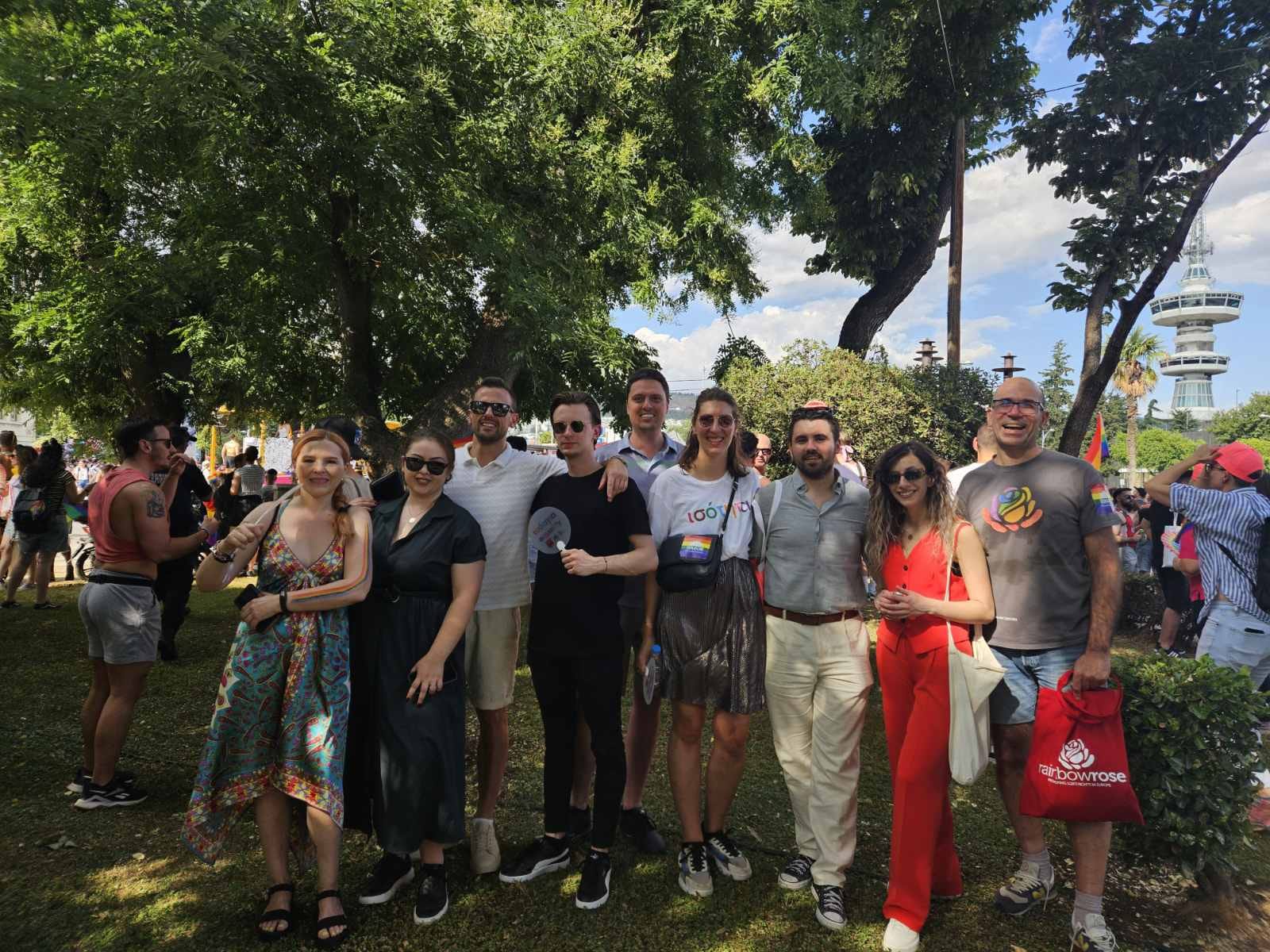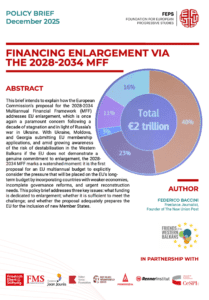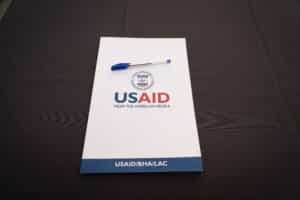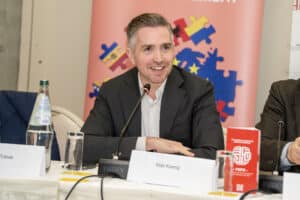Photo: Participants from the FMS, Rainbow Rose and Labour training at EuroPride in Thessaloniki
Although significant progress has been made in LGBTI+ rights in recent decades, the struggle for full equality remains an ongoing challenge. Discrimination, violence and lack of legal protection are still widespread in many parts of the world, including the Western Balkans. The FMS aims to counter these inequalities and support LGBTI+ movements in this region. We do this through the “LGBTI Inclusion in the Western Balkans” project.
For this project, the FMS, Rainbow Rose and Labour jointly organized a training in Thessaloniki, during the weekend of EuroPride. With this kind of training we want to support politicians and activists in the region, so they can better understand the unique challenges of the LGBTI+ community and respond to them more effectively.
We spoke with Miloš Đajić of the Centar Modernih Vestina and Dajana Bakić of Rainbow Rose, who were involved in the organization and present in Thessaloniki, about their experiences and expectations for the LGBTI+ Inclusion project.
United by a shared commitment to LGBTI+ inclusion
Miloš described the training in Thessaloniki as follows: “The first training session was an inspiring experience. It brought together representatives from social democratic parties from across the Western Balkans – Bosnia and Herzegovina, Montenegro, Northern Macedonia and Serbia – united by a shared commitment to LGBTI+ inclusion.”
“It brought together representatives from social democratic parties from across the Western Balkans – Bosnia and Herzegovina, Montenegro, Northern Macedonia and Serbia”
The program consisted of a mix of lectures, peer-to-peer learning and skills-building workshops. According to Miloš, Dina Bajrektarević’s presentation was a notable highlight: “Dina Bajrektarević, an activist from Tuzla, Bosnia and Herzegovina, gave a powerful presentation whose insights had a lasting impact.” Dajana emphasized that the panel discussions on LGBTI rights in the Western Balkans provided valuable opportunities for the exchange of ideas and strategies.
The stimulating influence of EuroPride
The training was held during the weekend of EuroPride, which took place in Thessaloniki this year. Naturally, the participants joined. Miloš noted that the atmosphere of EuroPride in Thessaloniki significantly enhanced the training experience: “For many participants, it was the first time they had attended a Pride event of this magnitude. This experience was a powerful lesson in organizing large-scale, joyful events and underscored the importance of visibility and solidarity in the movement for LGBTI+ rights.”
“For many participants, it was the first time they had attended a Pride event of this magnitude”
Dajana was also positive about EuroPride’s impact on the training: “Engaging participants on LGBTI+ issues can be challenging. Even social democratic politicians are often careful, because of the “sensitivity” of the topic. EuroPride provided an excellent opportunity to connect with activists from across the region and provided a platform for the queer community to openly and proudly express themselves, as well as hold meaningful discussions about issues facing the queer community.”
“EuroPride provided an excellent opportunity to connect with activists from across the region and provided a platform for the queer community to express itself openly and with pride”
EuroPride 2024 in Thessaloniki was particularly memorable for Miloš , especially compared to the tense atmosphere of EuroPride in Belgrade, where the event was almost banned, Miloš said: “EuroPride 2024 in Thessaloniki was a revelation. It was incredible to see what Pride can and should be, with more than 15,000 participants.” The experience was described as “a powerful demonstration of pride and purpose,” and he said it inspired participants to bring this sense of unity back to their communities.
Looking ahead: expectations and challenges
As Dajana looks ahead to the coming year, she sees both promise and significant challenges. She says a major challenge is the rise of far-right and populist parties, and the decline of queer rights. She cited a recent example in Bosnia-Herzegovina, where the government of entity Republika Srpska removed the term “gender identity” in amendments to the region’s criminal code. Miloš mentioned another challenge: “The most urgent challenge is the organizational fragility of the social democratic parties in our region,” he noted, citing declining support from citizens as a key problem.
“The most urgent challenge is the organizational fragility of the social democratic parties in our region”
Despite these challenges, Miloš and Dajana are hopeful. Dajana said: “I am excited about building a movement against these threats and supporting new activists and actual advocates for change.” Also, Miloš said : “My main expectation is that we will continue our collective struggle and mobilize new decision makers – especially MPs in the national parliament – to take up these issues.”
“I am excited about building a movement against these threats and supporting new activists and actual advocates for change”
Both see this program as a catalyst for change in conservative societies, helping to change attitudes and bring the fight for equality to the forefront. Miloš explained: “This program has trained a significant number of participants in four countries and provided them with the knowledge, skills and networks needed to promote change within their communities.”
Fighting inequalities together
Miloš and Dajana stress the need for ongoing engagement with the LGBTI+ community to show solidarity and commitment. They hope that after the program, participants will be equipped to address specific challenges faced by the LGBTI community in their own countries. “We can do this together,” Dajana said with determination.
“We can do this together”
Building a future where everyone, regardless of their sexual orientation or gender identity, feels safe and respected is paramount. The fight for LGBTI+ rights is far from over, but together we can fight inequalities and create a more inclusive society for future generations.



